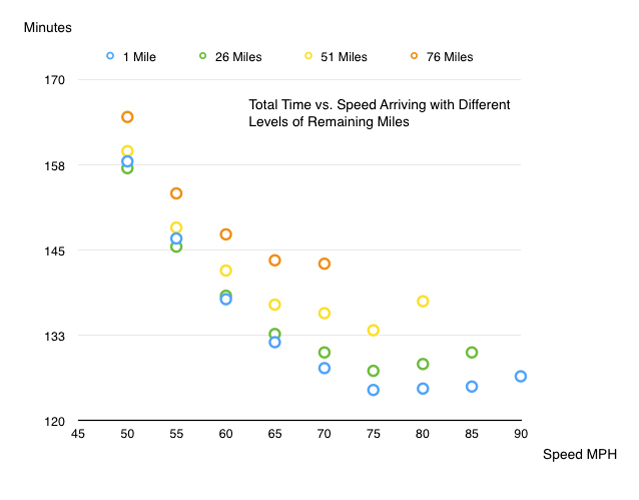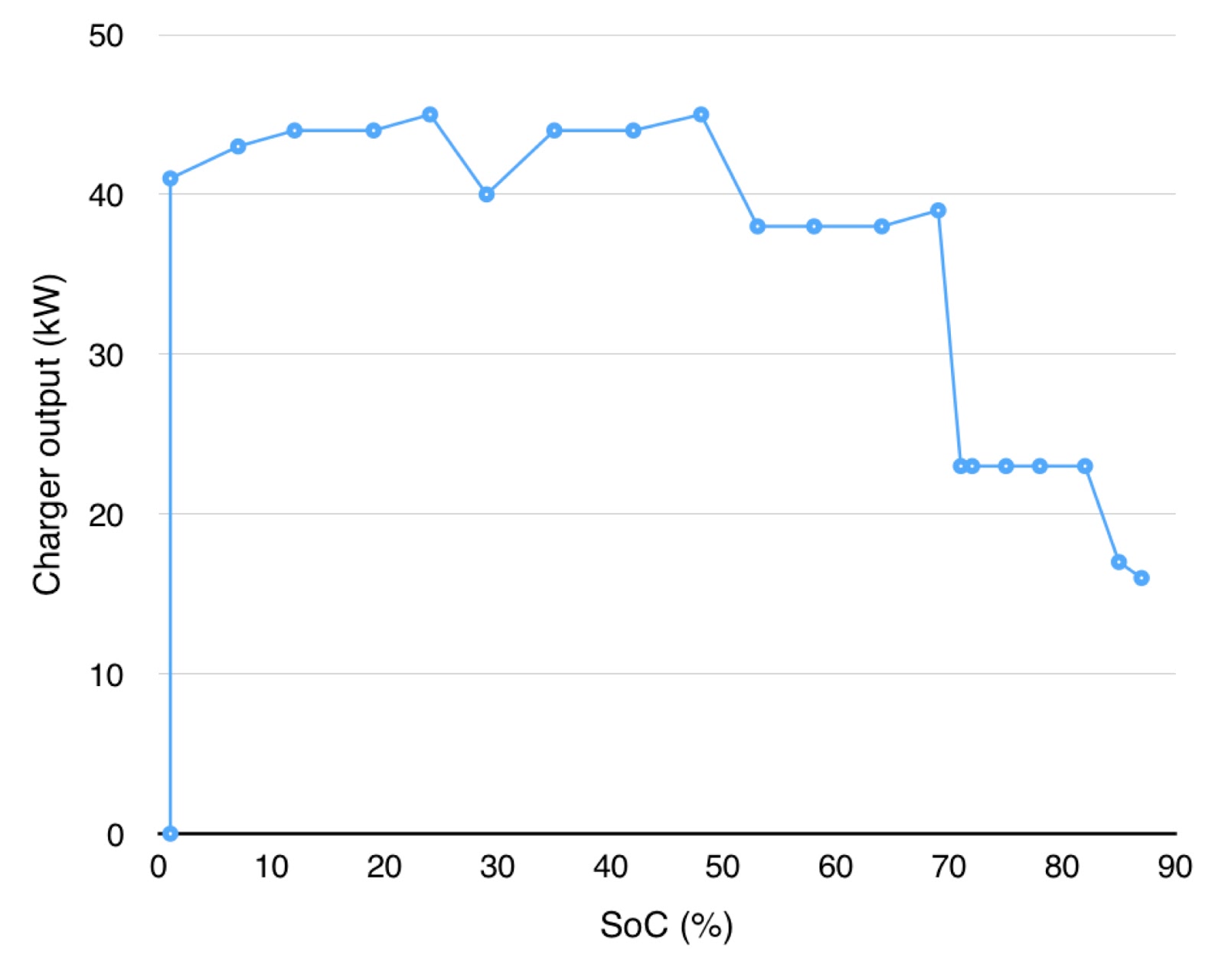WetEV
Well-known member
Nagorak said:With the current state of charging, I'm wondering if, counter-intuitively, it may not end up being faster to drive the whole way at 55 mph. True, it takes you longer to get from one point to the next, but you drain the battery less which means you spend less time stopped while charging. There's not a whole lot of point driving 75 mph to end up sitting for an hour at a charger.
On the other hand, that's balanced against charging speed. If you get to the charger faster, you can charge for a long time before the person traveling at 55 mph catches up.
It would be interesting figuring out what is the optimal strategy. Not to mention, traveling at 55 mph may not seem viable anyway since at that speed semis start passing you (even though technically they shouldn't be since they have a 55 mph limit). Safety may suggest traveling at least 60-65 minimum.
This is an interesting topic to think about. The answer depends on a lot of things, many of which I don't know. A very short list:
1) As the battery charges faster when empty than when full, having a lower charge level that your arrive at the charger lets you drive faster. So how much margin do you want? And how does the Bolt taper charge rate with battery level?
2) Distance between chargers. If chargers are close, you can drive fast, stop often and keep the battery fairly empty. If the chargers are far apart, you have little choice but to slow down, or to plan on a stop at an L2 charging station, even slower.
3) How busy the chargers are. If you have to wait, you might have done better to drive slower.
4) What is the peak power of the chargers? What about dual chargers, where you might end up sharing the available power? What is the tapering of charging rate as the battery fills? The lower the actual average charging power, the slower driving will produce a faster overall trip.
5) How does battery temperature interact with charging speed? On a hot day, driving fast, you might end up with a hotter battery at the charger, and the charge rate might be tapered down faster to avoid overheating the battery. On a cooler day, a warmer battery might charge faster or taper slower as it might be closer to the optimum temperature.
6) Some trip start/end effects and charger location effects. Driving slower without a charge stop is somewhat more predictable, and might be faster especially if the available charger(s) are before the half way point. Even if you can stand little margin, and there are lots of closely spaced chargers, the first leg might be better driven slower, until the battery gets empty enough to charge at a higher rate.
Here is a graph for a Tesla exploring topic #1 a little bit.

My advise, if you don't do road trips often don't worry about this at all. If you do, optimize for driver comfort and peace of mind by keeping a significant margin, drive slow enough so you don't get traffic tickets, and fast enough to not be a traffic hazard. If you need to stretch range a lot, find slower non-freeway routes. And enjoy the trip.

